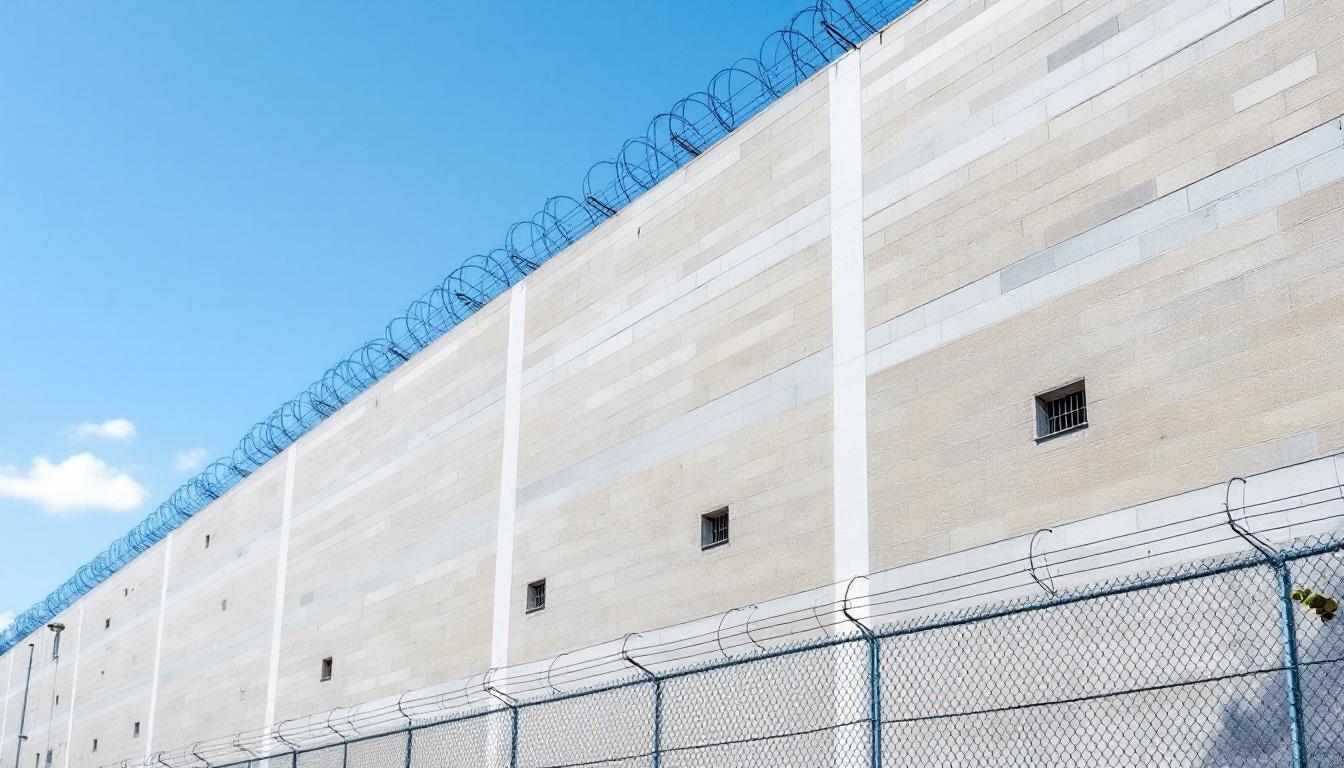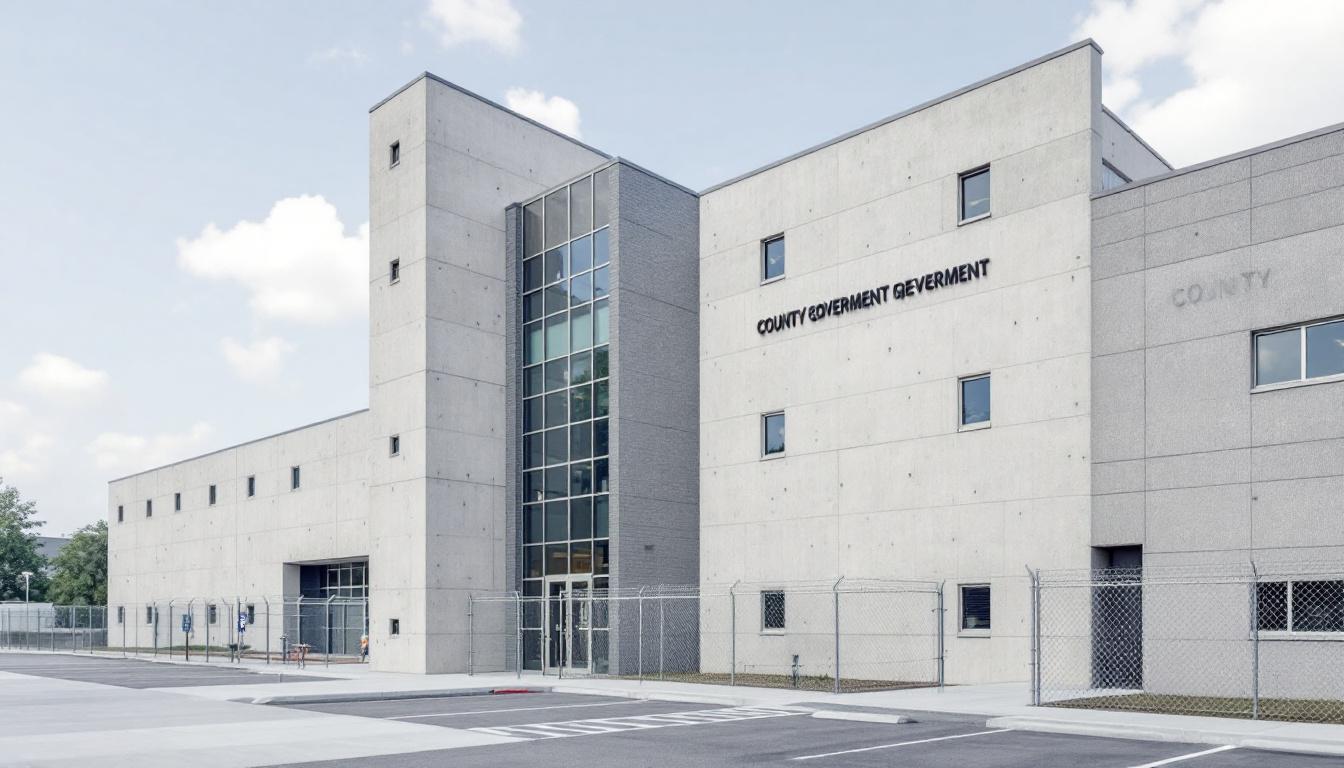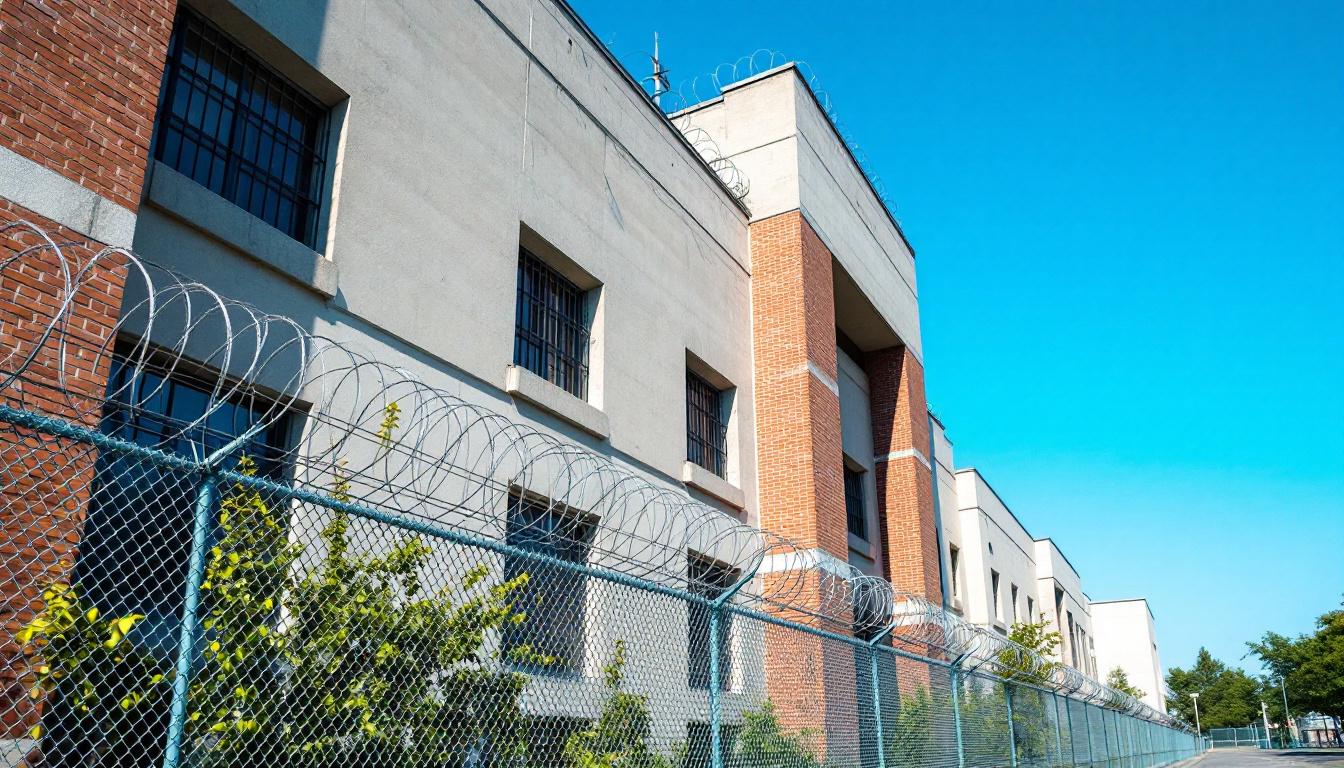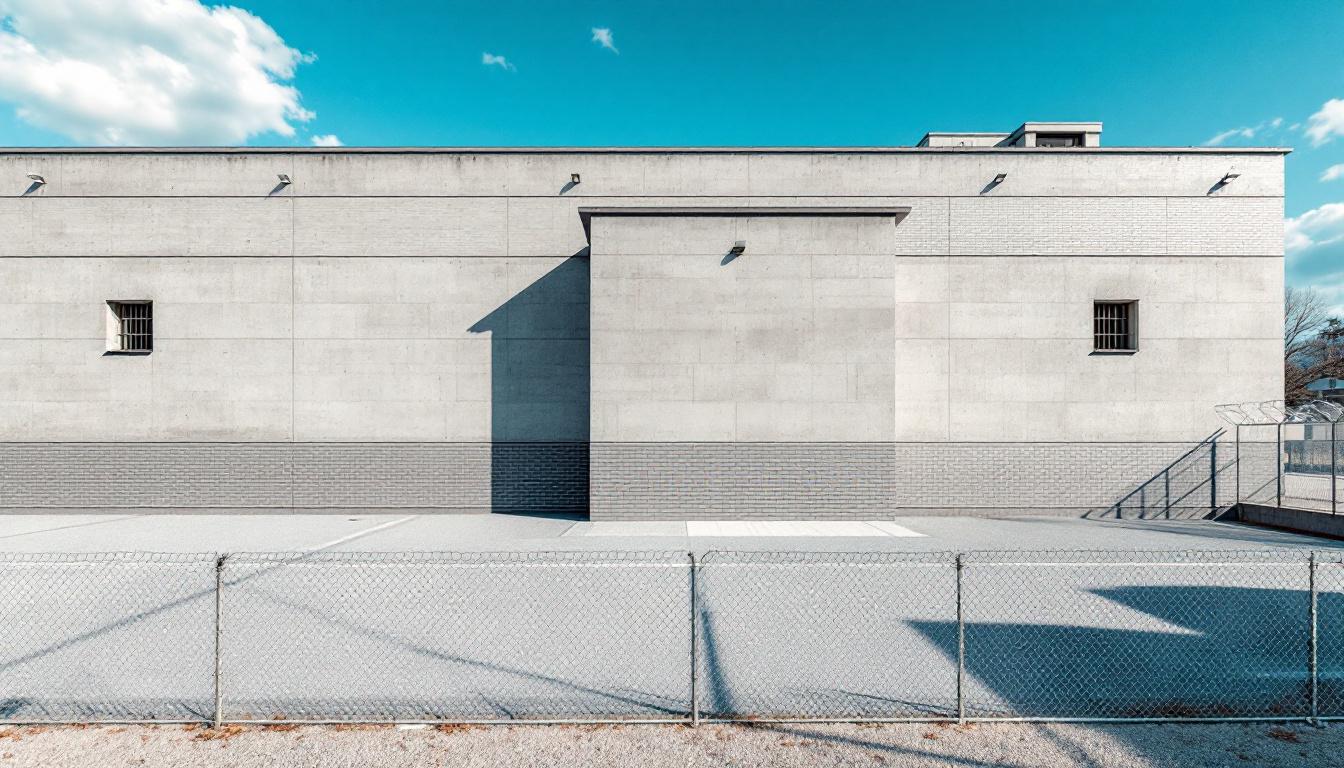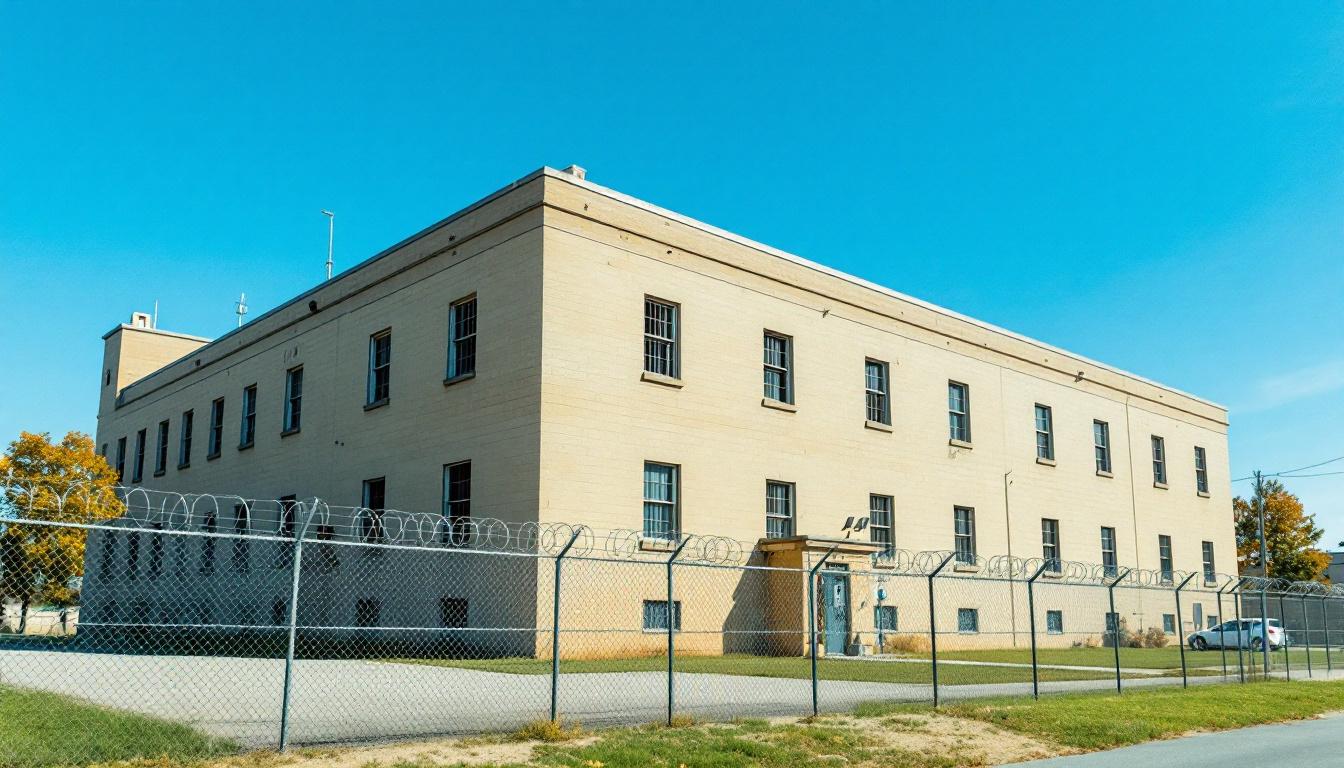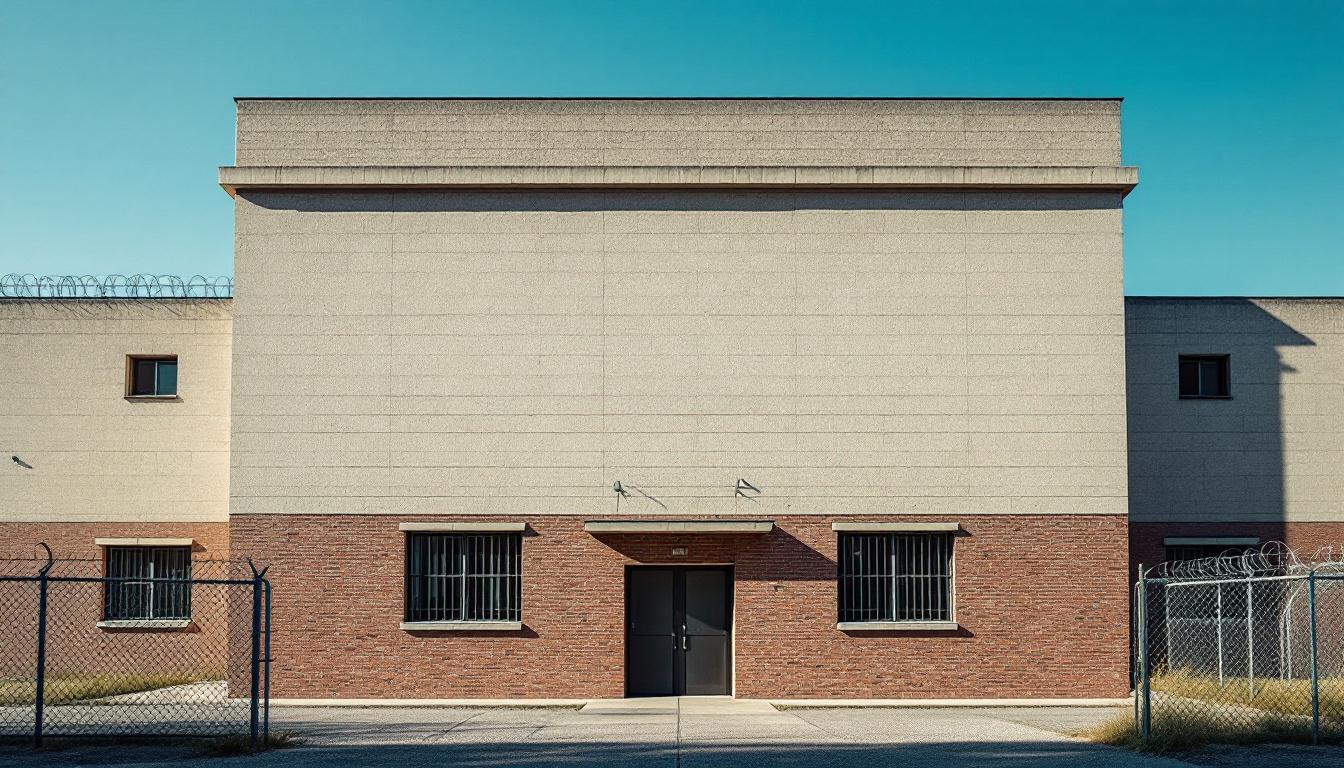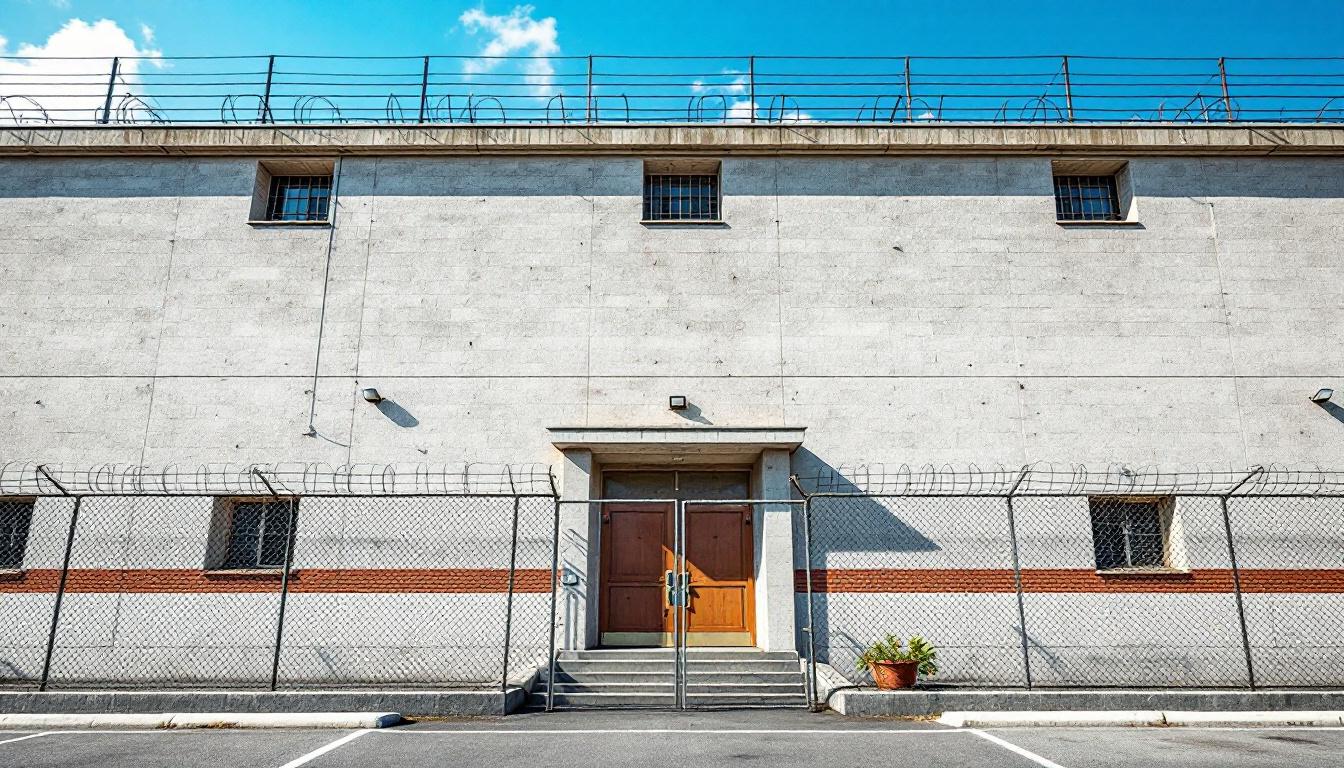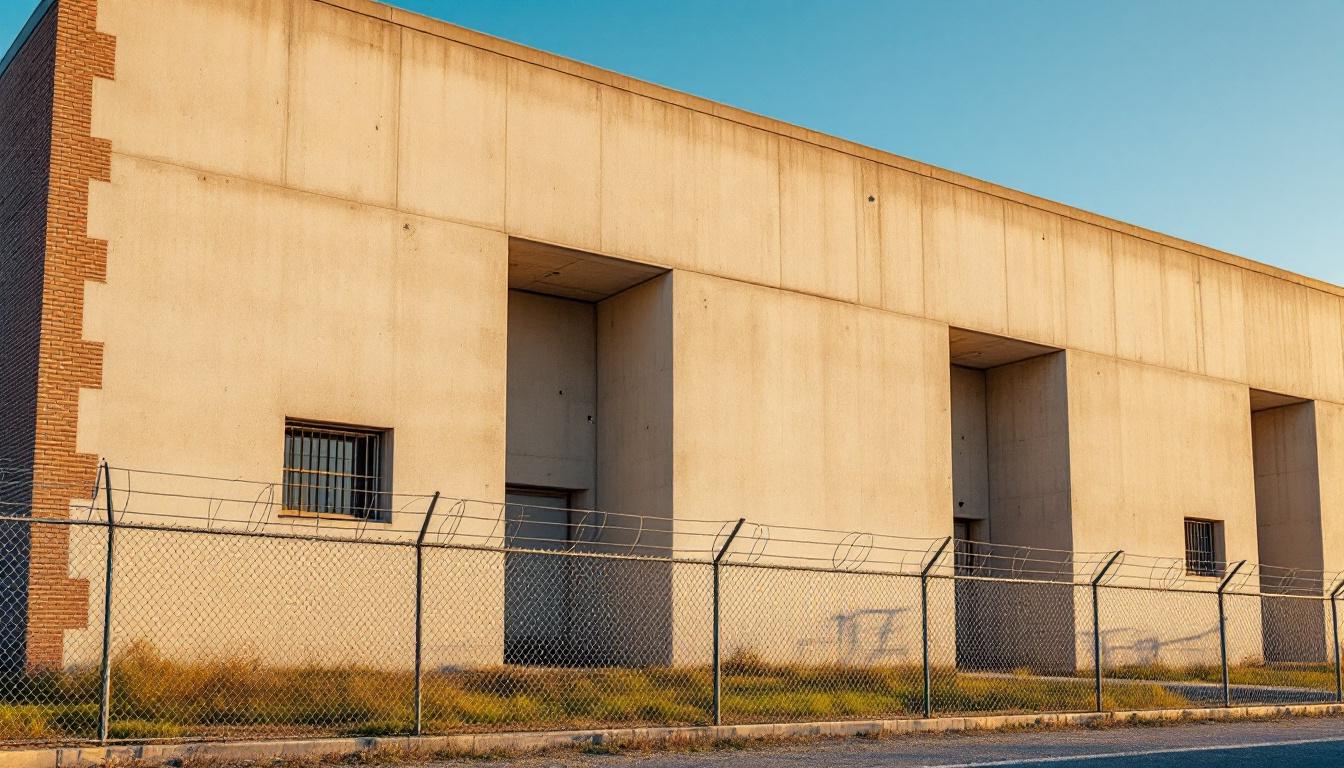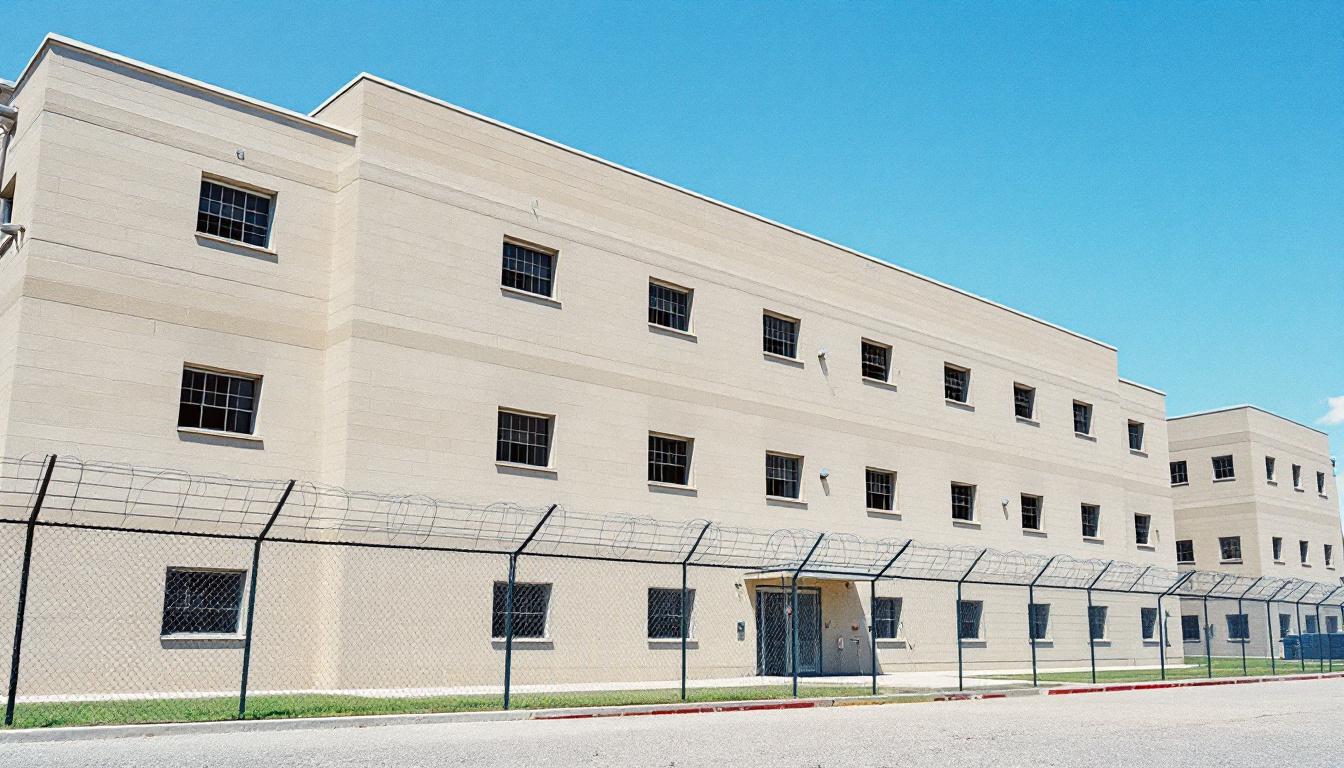
Quick Navigation
How to contact an inmate at FDC Houston
This comprehensive guide will walk you through how to connect with an inmate at FDC Houston. Follow the steps below to find an inmate and send letters and photos:
- Search for the inmate using our search tool below
- Create your account or log in to Penmate
- Write your message (up to 6,000 characters)
- Send instantly - inmates receive printed copies daily
Find an Inmate
Search for an inmate to start communicating today
Tip: You can search by first name, last name, or inmate ID number
To contact a person at FDC Houston start by searching for the person on the official facility website. Perform a search by following these steps:
- Step 1: Enter their first name and last name into the search form and click "Search"
- Step 2: Locate their inmate record
- Step 3: Write down their Inmate ID and any housing information provided
Important! Be sure to enter the person's full name. Nicknames should not be used.
How to Send Messages to Inmates

You can use your phone or computer to send emails, letters, and photos to an inmate. Messages are sent electronically to inmate tablets or kiosks at the facility. If you would like to send a message, start by searching for an inmate at FDC Houston.
Sending Photos and Postcards

A great way to send love and support to a loved one at FDC Houston is to send photos and postcards. It only takes a few minutes to send photos from your phone and it makes a huge difference. You can also mail postcards with words of support and inspiration, or design your own postcard for special moments like birthdays and holidays.
Important! Be sure not to send any explicit photos or they may not be approved by the facility. You can also use a photo printing app like Penmate to make sure your photos are printed at the correct size (4x6 or 3x5) and are mailed according to the rules and regulations of FDC Houston.
Frequently asked questions about FDC Houston
-
How long does it take to deliver a message?
If you're sending an email message your letter is usually delivered within 24-48 hours. For messages sent via mail you should expect delivery within 3-7 days. All messages will need be approved by FDC Houston.
-
How much does it cost to send a message to FDC Houston?
You can send a message free using your phone or mail a message via USPS for the price of a $0.60 stamp and envelope. You can also purchase credits or e-stamps from services starting at $1.99.
-
What services can I use to contact an inmate at FDC Houston?
Penmate
You can use Penmate to send letters and photos to an inmate from your phone. It's an easy way to stay in touch during your loved one's incarceration. Use the inmate locator to find an inmate's location and contact information, then you can send messages within a few minutes.
Securus messaging
Securus may be another option for communicating with an inmate at FDC Houston. You can create a friends and family account and purchase credits to send messages. All messages will be reviewed and must be approved by the facility.
JPay
Some county jails and state prisons may support sending messages with JPay. You must register an account with the system, find your loved one, and purchase stamps to send messages. For some locations you can also attach photos.
Smart Jail Mail
You may also check if Smart Jail Mail is available at FDC Houston. Smart Jail Mail is operated by Smart Communications and has contracted with some state and county jails. After purchasing credits, your messages and photos are sent to the facility, printed out, and then handed out to your loved one.
-
What is the mailing address of FDC Houston?
Mailing address:
FDC Houston
1200 Texas Ave
Houston, TX 77002
Phone: (713) 221-5400Business hours:
- Monday: 8:00 AM – 3:00 PM
- Tuesday: Closed
- Wednesday: Closed
- Thursday: 8:00 AM – 3:00 PM
- Friday: 8:00 AM – 3:00 PM
- Saturday: 8:00 AM – 3:00 PM
- Sunday: 8:00 AM – 3:00 PM
-
What are the visiting hours at FDC Houston?
Visiting hours at FDC Houston vary by housing unit and security level. Generally, visits are scheduled on weekends and holidays, with some facilities offering weekday visits. Contact the facility directly at (713) 221-5400 or check their website for the current visiting schedule. Visits typically last 30-60 minutes and must be scheduled in advance.
-
What items are prohibited when sending mail to FDC Houston?
Prohibited items typically include: cash, personal checks, stamps, stickers, glitter, glue, tape, staples, paperclips, polaroid photos, musical or blank greeting cards, hardcover books, magazines with staples, and any items containing metal or electronics. Only send letters on plain white paper with blue or black ink. Photos must be printed on regular photo paper (no Polaroids). Always check with FDC Houston for their specific mail policies.
-
How do I send money to an inmate at FDC Houston?
You can send money to an inmate at FDC Houston through several methods: 1) Online using JPay, Access Corrections, or the facility's approved vendor, 2) Money orders mailed directly to the facility with the inmate's name and ID number, 3) Kiosks located in the facility lobby, or 4) Over the phone using a credit or debit card. Fees vary by method, typically ranging from $2.95 to $11.95 per transaction.
-
Can I schedule a video visit with an inmate at FDC Houston?
Many facilities now offer video visitation as an alternative to in-person visits. At FDC Houston, video visits may be available through services like Penmate, Securus Video Connect, GTL, or ICSolutions. Video visits typically cost $10-20 for 20-30 minutes and must be scheduled in advance. You'll need a computer or smartphone with a camera and reliable internet connection. Contact the facility for their specific video visitation policies and approved vendors.
-
What identification do I need to visit an inmate at FDC Houston?
All visitors must present valid government-issued photo identification such as a driver's license, state ID, passport, or military ID. Minors must be accompanied by a parent or legal guardian who can provide the minor's birth certificate. Some facilities require visitors to be on the inmate's approved visitation list, which may require a background check. Contact FDC Houston for specific ID requirements and visitor approval procedures.
-
How can I find out an inmate's release date?
To find an inmate's release date at FDC Houston, you can: 1) Use the online inmate search tool if available, 2) Call the facility's records department, 3) Contact the inmate's case manager or counselor, or 4) Have the inmate provide this information during a call or visit. For privacy reasons, some facilities only release this information to immediate family members.
Facility Overview
Official Website

About FDC Houston
Educational programs, vocational training, and comprehensive support services form the cornerstone of daily operations at FDC HOUSTON, TX, where the facility’s commitment to meaningful outcomes shapes every aspect of the correctional experience. This TX correctional facility integrates security protocols with rehabilitation-focused programming, creating an environment where individuals services extend beyond basic housing to encompass personal development and preparation for successful community reintegration.
Located within Houston’s diverse metropolitan landscape, the facility typically operates under a structured framework that balances public safety requirements with evidence-based rehabilitation approaches. Staff members generally work to establish individualized pathways for residents, often incorporating educational opportunities, substance abuse counseling, and job readiness training that reflects the economic realities of the greater Houston region. The facility’s operational philosophy emphasizes accountability alongside skill-building, recognizing that sustainable positive outcomes require both personal responsibility and practical preparation for life beyond incarceration.
Within Texas’s broader correctional system, this Houston correctional facility may offer specialized programming that addresses the comprehensive challenges faced by its population, potentially including mental health services, family reunification support, and community partnership initiatives. The facility’s approach to rehabilitation typically focuses on measurable progress, encouraging participants to develop the tools and mindset necessary for long-term success while maintaining the security standards essential for public safety and institutional stability.
Programs & Services
Within the federal correctional landscape, a multifaceted approach to individual development recognizes that meaningful change emerges through diverse pathways of engagement and skill acquisition. The comprehensive programming framework at FDC Houston typically encompasses educational advancement, vocational preparation, therapeutic intervention, and community reintegration support, creating interconnected opportunities that address the varied needs and circumstances of individuals in federal custody. This holistic methodology acknowledges that sustainable personal growth often requires simultaneous attention to practical skills, emotional wellness, and spiritual development.
Educational and vocational opportunities form the cornerstone of skill development initiatives, with vocational training programs designed to equip individuals with marketable competencies for post-release employment. These structured learning environments may offer hands-on instruction in specialized trades, while work programs provide practical experience in facility operations and maintenance roles. Furthermore, upholstery training represents one potential avenue for developing craftsmanship skills that translate directly to civilian employment opportunities, combining technical proficiency with creative problem-solving abilities.
Therapeutic and support services complement skill-building initiatives through targeted interventions addressing behavioral and emotional challenges. Anger management opportunities typically focus on developing healthy coping mechanisms and conflict resolution strategies, while cognitive behavioral therapy sessions may help individuals identify and modify thought patterns that contribute to problematic behaviors. Additionally, faith-based initiatives often provide spiritual guidance and community support, and identification document assistance helps ensure individuals possess necessary documentation for successful community reintegration, addressing practical barriers that might otherwise impede their transition to civilian life.
Daily Life & Visitation
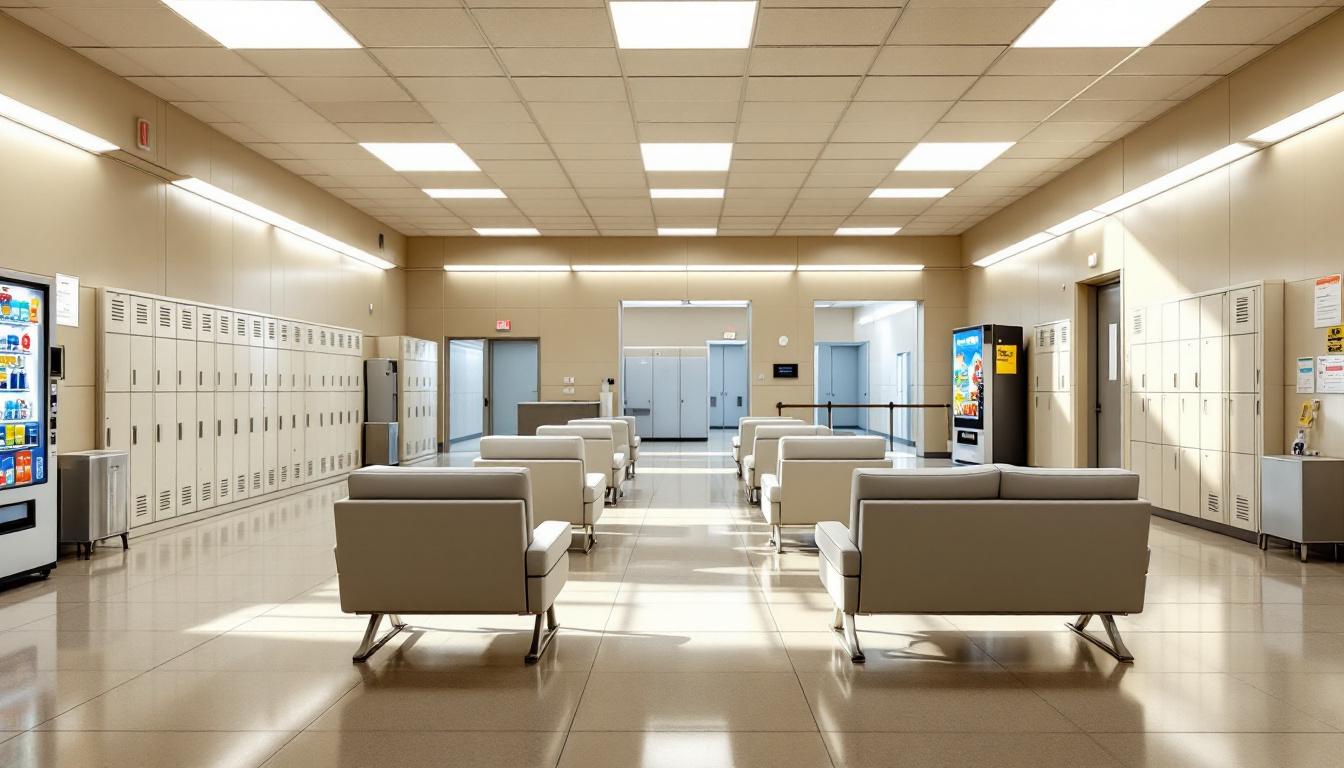
The rhythmic sound of meal trays being distributed now signals the beginning of another structured day for individuals housed at FDC Houston, where federal detention routines regularly unfold with predictable precision. Wake-up typically occurs in the early morning hours, followed by headcount procedures and the gradual transition into daily programming activities. Individuals generally move through their day according to established schedules that may include work assignments, educational programs, or recreational periods, with staff supervision maintaining order throughout the facility’s operations.
Living accommodations at the facility typically consist of shared housing units where individuals are assigned based on classification levels and security considerations. These units generally provide basic amenities including beds, storage areas for personal belongings, and shared bathroom facilities, though the specific arrangements may vary depending on the housing section. Furthermore, individuals usually have access to commissary services where they can purchase approved personal items, snacks, and hygiene products using funds from their institutional accounts, which helps supplement the standard-issued items provided by the facility.
Although daily routines follow structured patterns, the facility typically offers various programming opportunities that may include educational classes, vocational training, religious services, and recreational activities in designated areas. Visitation policies generally allow approved family members and friends to maintain contact through scheduled visits, while telephone and written correspondence provide additional communication options for individuals to stay connected with their support systems outside the facility. Work assignments within the institution often include food service, maintenance, laundry operations, and other facility support roles that offer individuals productive ways to spend their time while contributing to the daily operations of the institution.
Ready to Connect?
Start communicating with your loved one today
Search for an Inmate
